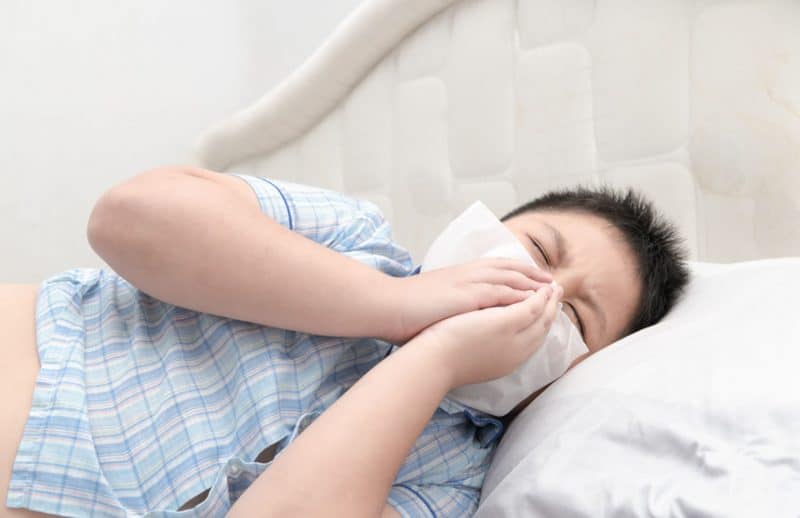Quiz: Parents, How Much Do You Know About Antibiotics?
“Can you give my child antibiotics?” That’s a question that parents often ask doctors. However, did you know that antibiotics are not always needed? Take the true-false quiz below to find out more!
“Antibiotics treat illnesses caused by bacteria and viruses.”
Answer: False
Bacteria and viruses are different types of germs, and they cause different types of infections. Antibiotic drugs can kill or slow the growth of bacteria, but they have no direct effect on viruses.
Did You Know? In a survey of over 900 patients in Singapore, 78 percent were not aware that antibiotics are ineffective against viruses.
“My daughter is having a cough, sore throat, and runny nose. The doctor needs to prescribe antibiotics for her to get well.”
Answer: False. Antibiotics will not cure your child’s cough, sore throat, and runny nose if she is suffering from a viral infection.
Antibiotic drugs can kill or slow the growth of bacteria, but they have no direct effect on viruses.
Two common infections in Singapore are the common cold and the flu. They are also known as “upper respiratory tract infections” or URTIs.
URTIs are mainly caused by viruses that affect the upper part of the respiratory tract. This includes the mouth, nose, sinus, throat, voice box, and windpipe.
Both the common cold and the flu are infections caused by viruses. If your child has the common cold or the flu, he or she may have a runny nose, nasal congestion, a sore throat, a cough, or even a mild fever.
Antibiotics are not needed to treat viral URTIs, which will typically resolve on their own. If your child has a viral URTI, a doctor may prescribe medications such as cough syrup to help your child feel better.

“My son has been coughing and sneezing for five days. His doctor should give him antibiotics for a faster recovery.”
Answer: False. If your child has a viral upper respiratory tract infection (URTI), antibiotics will not hasten recovery in any way.
A viral URTI usually resolves within three to 10 days. It may be uncomfortable for your child, but because it is not a bacterial infection, it will not respond to antibiotics.
Using antibiotics to treat viral infections unnecessarily exposes your child to the risk of antibiotic side effects. These include rashes, dizziness, nausea, diarrhoea, and yeast infections.
At the same time, misusing or overusing antibiotics accelerates the development of antibiotic resistance. Antibiotic resistance happens when a strain of bacteria changes into a form that can no longer be killed by antibiotics. If more and more bacteria become resistant to antibiotics, minor diseases that are easily treatable today may one day become incurable.
Did You Know? In a survey of over 900 patients in Singapore, two-thirds thought that antibiotics could more quickly cure their cough, sore throat, and runny nose—symptoms usually caused by viruses.
“When children are feverish, they definitely need antibiotics.”
Answer: False. Fevers can be a result of bacterial infections, but they are also a common symptom of viral illnesses such as the flu.
Antibiotics are effective against bacterial infections, but they are of no use against viral infections. Always talk to your doctor for the treatment that your child needs, and whether antibiotics are necessary.
“I think my child has a viral infection. I know for sure that she won’t need antibiotics.”
Answer: False. It is difficult to distinguish between bacterial and viral infections, so it’s best not to try and diagnose a child at home.
While bacteria and viruses cause different types of infections, they share many symptoms, such as runny nose, nasal congestion, sore throat, cough, or even a mild fever. Therefore, you should always speak to a doctor for the treatment you need.
Your doctor will be able to assess your child’s condition, and advise you on the best course of action.
Learn more about using antibiotics right at HealthHub.sg.

